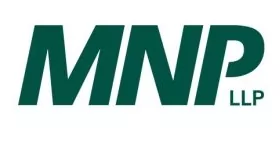Synopsis
- Financial fraud is still on the rise in Canada, and Canadian businesses haven't been spared this trend. But why is Canada such a prime target?
- An MNP survey shows that only 3% of business leaders perceive the risk of financial fraud for their company to be very high, while almost half of them believe it to be low or very low.
- Because of the current financial fraud landscape and the new tactics being used, it is imperative that businesses do what's necessary to protect themselves.
Financial fraud is still on the rise in Canada. Radio-Canada recently published an article1 stating that the country was a « prime target » for international fraud. The questions we should ask are, "Is this true," and if so," Why"?
Recent numbers
The Canadian Anti-Fraud Centre (CAFC) records a significant increase in losses to fraud, from $383 million in 2021 to $530.4 million and $569 million in 2022 and 2023 respectively.
| 2021 | 2022 | 2023 |
|---|---|---|
| $383 million | $530.4 million | $569 million |
It should be noted that these numbers account for reported frauds, meaning total losses are therefore higher. Reported instances of external fraud are generally more represented in the data and don't always include cases of internal fraud or collusion with external parties.
Why is Canada a target?
The article reveals that criminals love our country because the locals are friendly and relatively wealthy, they have relatively high savings and benefit from good retirement provisions, which makes Canadians and Canadian businesses of all sizes prime targets.
Our U.S. counterparts often notice that American fraudsters focus on Canada because lax federal legislation and the lack of prison terms and financial penalties make the country an easy target.
Evolving types of fraud
Fraud evolves, and while certain tried-and-true schemes are still used, the way in which they are perpetrated has changed over the years. Let's look at investment fraud, for example. Ponzi schemes and other traditional forms of investment fraud use sometimes aggressive, sometimes subtle sales tactics to promote investments of no, or very limited, value. While in-person Ponzi and pyramid schemes are still being reported, investment fraud has evolved with the emergence of cryptocurrencies. The CAFC estimates that cryptocurrency fraud accounted for more than half of the $309 million in investment fraud losses reported in 2023. Fraudsters post on social media and attract investors through email and fake profiles on networking and dating sites.
Service fraud, which includes cleaning, housing resale, and immigration services, is another example of how things have evolved. While fraudsters still solicit victims through traditional means like the telephone, they also use social networks, the media, email, and advertising to lure them in.
Targeted businesses
How do these changes affect businesses? Are Canadian companies more likely to fall victim to financial fraud? What about their implementation of anti-fraud measures and their perception of financial fraud? An MNP survey shows that only 3% of business leaders perceive the risk of financial fraud for their company to be very high, while almost half of them believe it to be low or very low. This lack of concern increases the chances of being a target of financial fraud and falling victim to it if robust anti-fraud measures aren't in place. Leaders have to promote a zero-tolerance policy with regard to in-house fraudulent behaviour. They must ensure everybody knows the warning signs of fraud and the steps to take if they are identified.
Footnote
1. https://ici.radio-canada.ca/info/long-format/2049426/fraude-cryptomonnaie-centres-appels-canada
This article originally appeared in Le Monde Juridique. It is republished with the author's permission.
The content of this article is intended to provide a general guide to the subject matter. Specialist advice should be sought about your specific circumstances.


